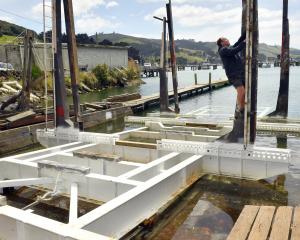
This reflected a catch-up, council chief executive Sandy Graham said.
There were "best endeavours" to contain costs, she said.
"A good proportion of that 7% has been absorbed through savings."
The 7% figure came up at an audit and risk subcommittee meeting yesterday and the Otago Daily Times is unaware of it having been declared publicly before.
In a March council agenda, the chief executive’s report commented the 2023-24 budget "did not provide for a salary increase, and the negotiated increase was absorbed within existing budgets".
"This saving has been achieved by vacancy management and a slow-down in recruitment," the report said.
It was reported at the time there had been a reduction in the staff head count from 903 to 852 fulltime-equivalent positions.
Ms Graham had an update yesterday about vacancies.
"We’re carrying 80-plus vacancies still," she said.
The 2023-24 financial period up until the end of May had an unfavourable variance of $2million for personnel costs, as the budget was for about $74.5m and the actual result was $76.5m.
"The unfavourable staff variance is being partially mitigated by vacancy management," a report for the subcommittee said.
Ms Graham said the council’s leave liability was also part of the challenge.
The council’s leave management policy was discussed at the subcommittee meeting.
Three days for Christmas leave had been lost and five days of annual leave added, resulting in a net increase of two days.
This brought annual leave to five weeks.
The council report from March noted the draft budget for 2024-25 provided for an increase in personnel costs of just over $2.6m, or 3.3%.
"This provides for a union-negotiated salary increase for staff."
Personnel expenses for 2024-25 have been budgeted at about $83.9m.












